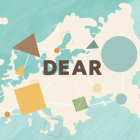Hope and Global Perspectives in Education
News details

The Western educational discourse has given little attention to marginalised voices and non-Western philosophy. Global citizenship education, more specifically, has perhaps over-emphasised critiques of existing development and cooperation policies and practices - to the detriment of more positive, optimistic and progressive narratives of the future. It has also thus lacked future-orientation and hope for change.
UNESCO has been a leader in the debate around the future of education, integrating Global Citizenship and Sustainable Development themes and transformative learning methods. The Global Education Network Europe (GENE) has been leading the review of Global Citizenship Education (GCE), with its Agenda for Global Education to 2050 - launched in November 2022. Also known as the “Dublin Declaration”, it calls for future-oriented ideas, transformative learning methods and the integration of social justice themes in GCE.
The special edition’s four articles highlight a “pedagogy of hope”, which grew out of a symposium of the “Academic Network of Global Education and Learning” (ANGEL):
- ‘Beyond a pedagogy of reason: exploring a pedagogical approach for a non-Western context’ by Aamna Pasha
Through engagement with the Islamic values of adl (justice) and rahma (mercy), global learning can address social justice themes across different cultural and social contexts, Ms Pasha shows. She argues that value-based perspectives need more attention in Global Citizenship Education. Pedagogies of sentiment, through themes such as compassion and justice, for example, can link global learning to specific local cultural and religious norms.
- ‘Integrating planetary citizenship as a cross-curricular theme and a whole-school approach: using a value-creating approach to learning’ by Namrata Sharma
Emphasising the impact of recent global crises, such as the global pandemic and climate emergency, Ms Sharma proposes a new, global and holistic pedagogical and philosophical approach. She brings together concepts from Soka education, the Earth Charter and planetary citizenship. The Japanese and Buddhist inspired Soka pedagogy centers on the lifelong happiness of learners, has been successfully used in a series of Japanese schools and universities. The Earth Charter is an international declaration of fundamental values and principles for building a just, sustainable and peaceful global society. Finally, Ms Sharma also highlights the influential 1996 report on “learning to know, be, do and live together”
- ‘Situating Daisaku Ikeda’s essential elements of global citizenship within contemporary scholarship: a qualitative meta-synthesis’ by Paul Sherman and Olivia Boukydis
The authors Sherman and Boukydis also explore Soka education and one of its founders Daisaku Ikeda. In his writings, they identify the key themes and values of interconnectedness, valuing difference and individual responsibility. The link with global citizenship education is clear, with its focus on social engagement and action for social change.
- ‘Futures and hope of global citizenship education’ by Massimiliano Tarozzi from ANGEL
Mr Tarozzi expands the debates around values and global citizenship education to include the vision of possible futures, inspired by UNESCO’s report “Reimagining Our Futures Together” (2021). He notes the need to connect hope and the future to a sense of global social justice. Yet he calls for a hope that is critical and goes beyond some of the idealism and utopian thinking, which often shapes global citizenship education.
All articles highlight the need to connect dominant global citizenship themes to specific local cultural contexts and its narratives to today’s global crises. They encourage readers and academics to delve into ideas from educational and philosophical movements from across the globe, as well as from international charters and organisations such as UNESCO and the Earth Charter.
This special edition could thus inspire DEAR ideas of how to address the impact of the climate crisis and people’s fears for the future, as well as open our minds to pedagogical and philosophical traditions beyond the EU. It calls for a stronger integration of the values of justice and equity, as well as hope, into Global Citizenship Education.
For more info and the complete special edition of the “International Journal of Development Education and Global Learning”.

Log in with your EU Login account to post or comment on the platform.